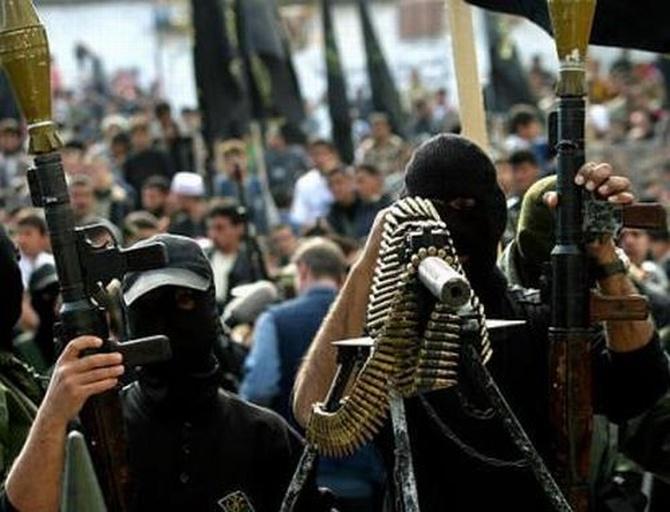The Al Qaeda, the Islamic State or Daesh, as it is also called, will continue to exploit the fault lines and the many contradictions in the approaches of different countries, says Hardeep Puri.

Two terror attacks in as many weeks in London, 80 killed in an attack in Kabul on May 31. The global fight against terror will clearly be a long haul.
In March 2002, I had just left London and joined as India’s Permanent Representative to the United Nations in Geneva. A conversation with the head of the United Kingdom delegation over lunch merits recall.
The mainstream narrative then was that human rights violations are committed by the State; the individual is helpless and vulnerable against a strong and repressive State.
Having endured three years of this in London, it was now my turn to set the narrative. I pointed to the double standards involved. It is easy and even tempting to sermonise for someone who has not been at the receiving end of terrorism.
The conversation was less than pleasant. I mentioned to her that closing one's eyes to State sponsorship of terrorism by our western neighbour, providing a safe haven to different hues of militants that took advantage of democratic freedoms offered by the United Kingdom will come to haunt them. I recalled the assassination of Ravindra Mhatre, an Indian diplomat in Birmingham in 1984.
Fifteen years is a long time in the life of a nation and sufficient for changing the narrative.
Non-State military actors such as the Al Qaeda and the Islamic State could not have survived and flourished without the support provided by certain States.
Western governments encouraged and augmented the autonomous efforts of several Sunni states in the Persian Gulf to finance and arm terrorist outfits of different hues to militarily dislodge the Bashar al-Assad regime in Syria.
The civil war that is raging in Syria is now at once both a proxy war with the Russians and Iranians actively engaged in propping up the Assad regime, a sectarian war with Iran, Iraq and Shia minorities elsewhere on the side of Assad and the Sunnis in Saudi Arabia, UAE, Jordan and elsewhere pouring money and military material to oust Assad.
There are no innocents in this fight.
Assad is as guilty of war crimes as are the motley terror outfits reined against him and supported by the Sunni regimes in Saudi Arabia and the UAE.
To suggest that Qatar is the only source of the problem, an inference that flows from United States President Donald Trump’s ostensible endorsement of the Saudi line, amounts, at the very least, to being delusional.
Yes, Qatar has been financing the Muslim Brotherhood, which seeks to destabilise Egypt and Saudi Arabia.
At the same time, Saudi Arabia is the fountainhead of Wahhabi Salafist ideology, which is the root cause of much of the radicalisation of moderate Islam, not only in the Arab world but in parts of Asia and Europe as well.
To try to form an alliance with the Saudis against Iran, apart from being short-sighted, involves taking sides in a sectarian civil war in Syria and a larger sectarian conflict in which the United States has little to gain.
That the Saudis have been successful in using their “margin of persuasion” with a less than settled Trump administration will enhance insecurity and not only make West Asia more dangerous but fuel the forces that feed the terror machine. The 110-billion dollar arms contracts signed during the President Trump’s visit to Saudi Arabia sustain this kind of delusional thinking.
The fight against terror continues to be selective. Our western neighbour encourages groups that seek to cause mayhem in India and pretend to rein in the Haqqani network.
In the process, it has discovered, to use Hillary Clinton’s oft-quoted expression, “You cannot raise vipers in your own backyard and then not expect them to bite you!”
The Al Qaeda, the Islamic State or Daesh, as it is also called, will continue to exploit the fault lines and the many contradictions in the approaches of different countries. Turkey will target the Kurds even as the Kurds are used by others to fight the Islamic State.
All countries without exception need to end State sponsorship.
The cliché “one man’s terrorist is another man’s freedom fighter” is, in a sense, the essential core of the problem.
Tiny Qatar has a much smaller population than the Kingdom of Saudi Arabia, but it has roughly the same scale of resources it can use for destabilisation of the countries in the region.
Iran is similarly well endowed in terms of resources, western sanctions notwithstanding.
Equally, an Israeli/Saudi hook to produce an alliance between the US, Israel and a new Sunni NATO led by Saudi Arabia appears both amateurish and somewhat fanciful.
It can only produce new fault lines and troubled waters in which others can apply for fishing licences. Should this “hook” be pursued, it will only compound the folly of delusional policies pursued in Iraq, Libya and Syria.
Hardeep Puri chaired the counter-terrorism committee of the UN Security Council in 2011-12.












 © 2025
© 2025